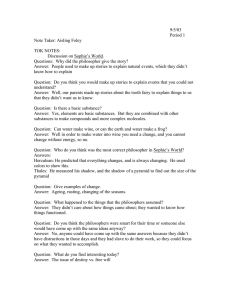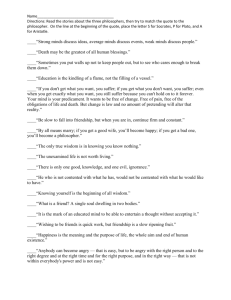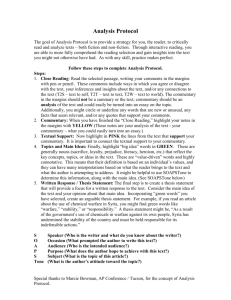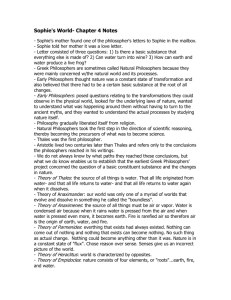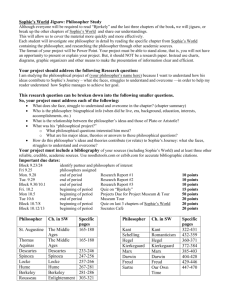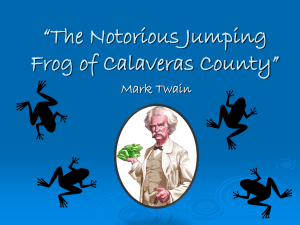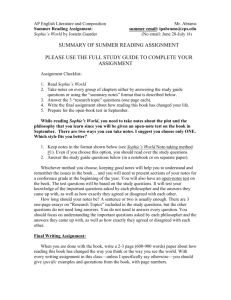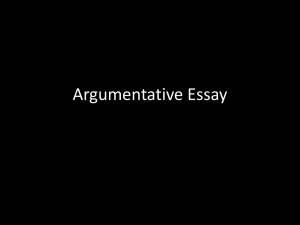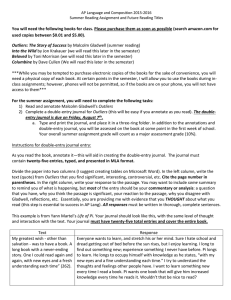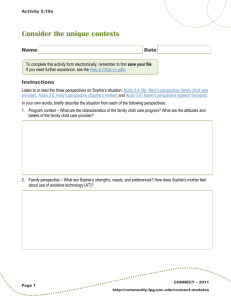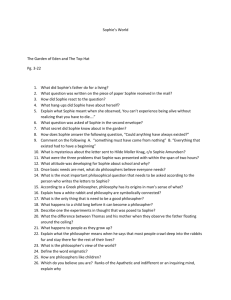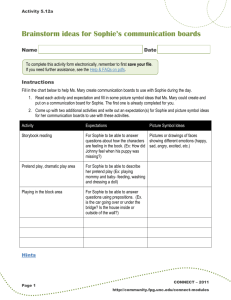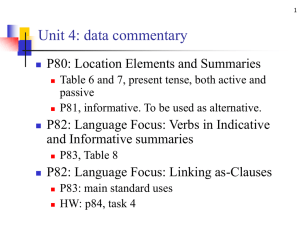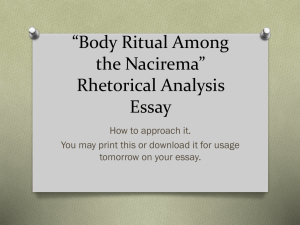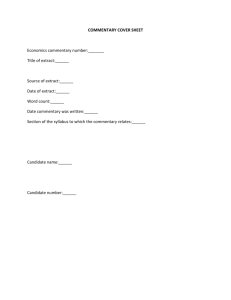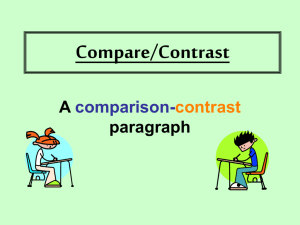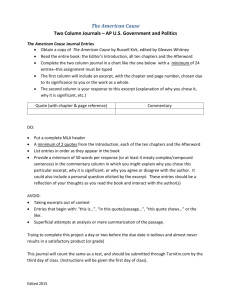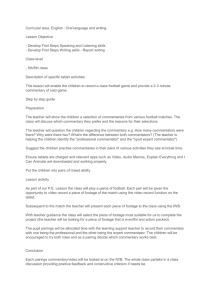Sophie`s World Assignment for AP Language and Composition (15
advertisement
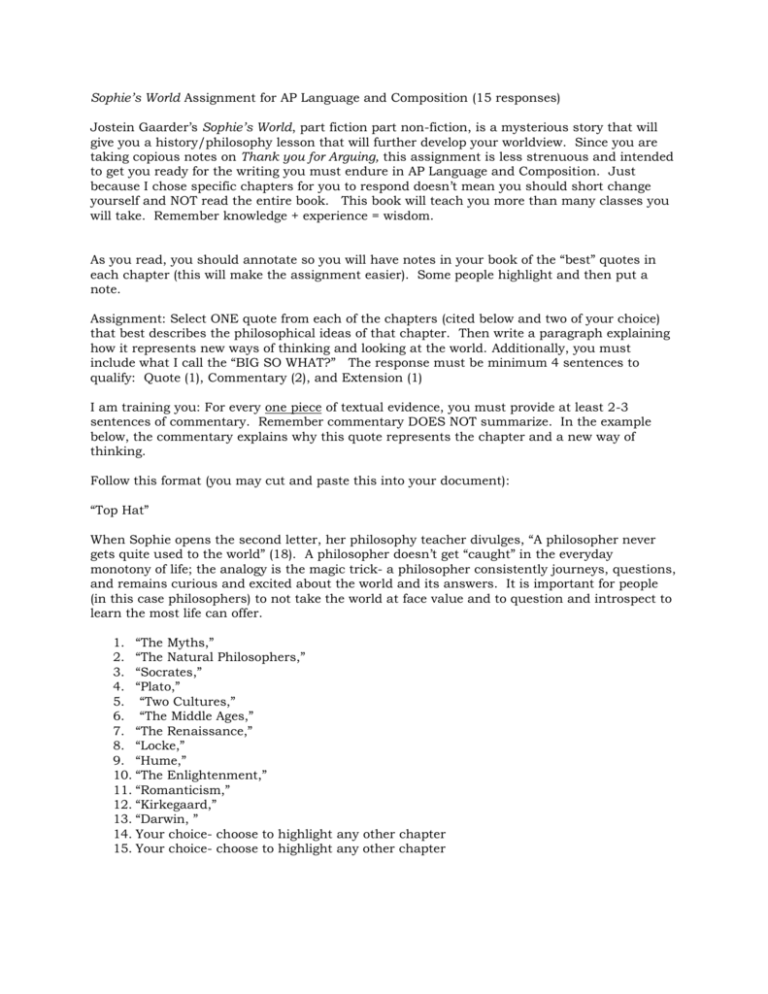
Sophie’s World Assignment for AP Language and Composition (15 responses) Jostein Gaarder’s Sophie’s World, part fiction part non-fiction, is a mysterious story that will give you a history/philosophy lesson that will further develop your worldview. Since you are taking copious notes on Thank you for Arguing, this assignment is less strenuous and intended to get you ready for the writing you must endure in AP Language and Composition. Just because I chose specific chapters for you to respond doesn’t mean you should short change yourself and NOT read the entire book. This book will teach you more than many classes you will take. Remember knowledge + experience = wisdom. As you read, you should annotate so you will have notes in your book of the “best” quotes in each chapter (this will make the assignment easier). Some people highlight and then put a note. Assignment: Select ONE quote from each of the chapters (cited below and two of your choice) that best describes the philosophical ideas of that chapter. Then write a paragraph explaining how it represents new ways of thinking and looking at the world. Additionally, you must include what I call the “BIG SO WHAT?” The response must be minimum 4 sentences to qualify: Quote (1), Commentary (2), and Extension (1) I am training you: For every one piece of textual evidence, you must provide at least 2-3 sentences of commentary. Remember commentary DOES NOT summarize. In the example below, the commentary explains why this quote represents the chapter and a new way of thinking. Follow this format (you may cut and paste this into your document): “Top Hat” When Sophie opens the second letter, her philosophy teacher divulges, “A philosopher never gets quite used to the world” (18). A philosopher doesn’t get “caught” in the everyday monotony of life; the analogy is the magic trick- a philosopher consistently journeys, questions, and remains curious and excited about the world and its answers. It is important for people (in this case philosophers) to not take the world at face value and to question and introspect to learn the most life can offer. 1. “The Myths,” 2. “The Natural Philosophers,” 3. “Socrates,” 4. “Plato,” 5. “Two Cultures,” 6. “The Middle Ages,” 7. “The Renaissance,” 8. “Locke,” 9. “Hume,” 10. “The Enlightenment,” 11. “Romanticism,” 12. “Kirkegaard,” 13. “Darwin, ” 14. Your choice- choose to highlight any other chapter 15. Your choice- choose to highlight any other chapter
